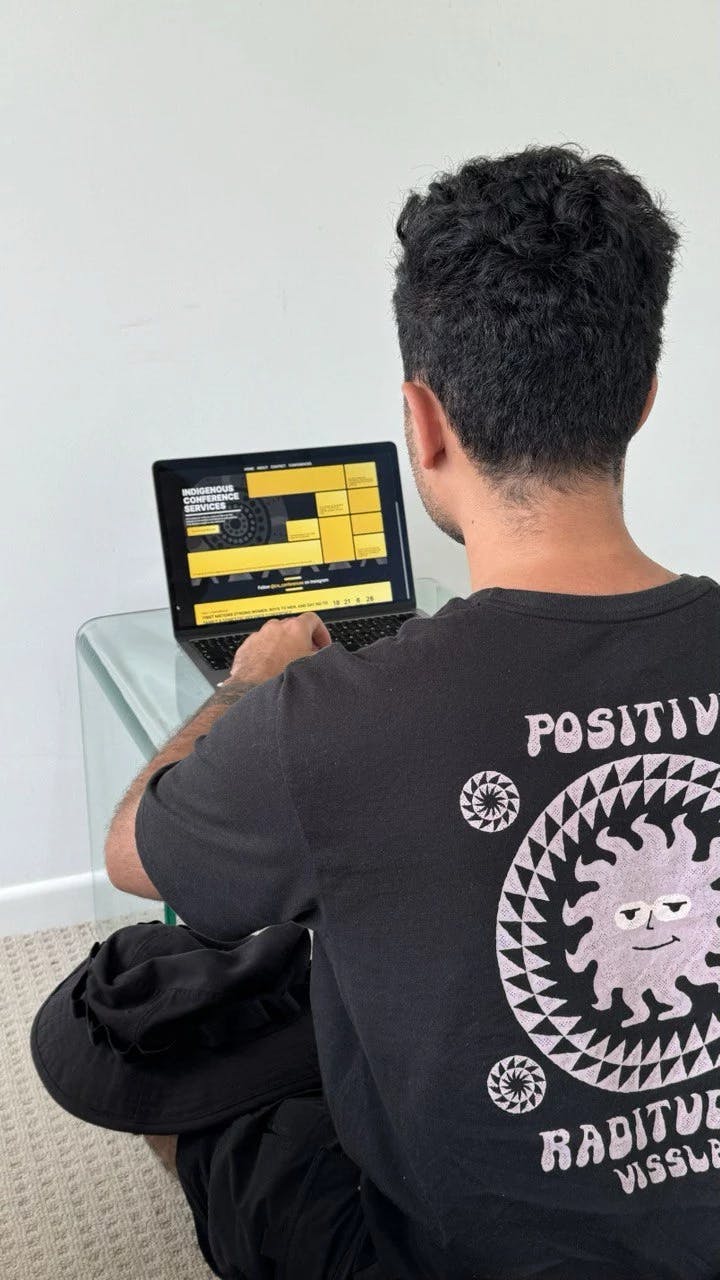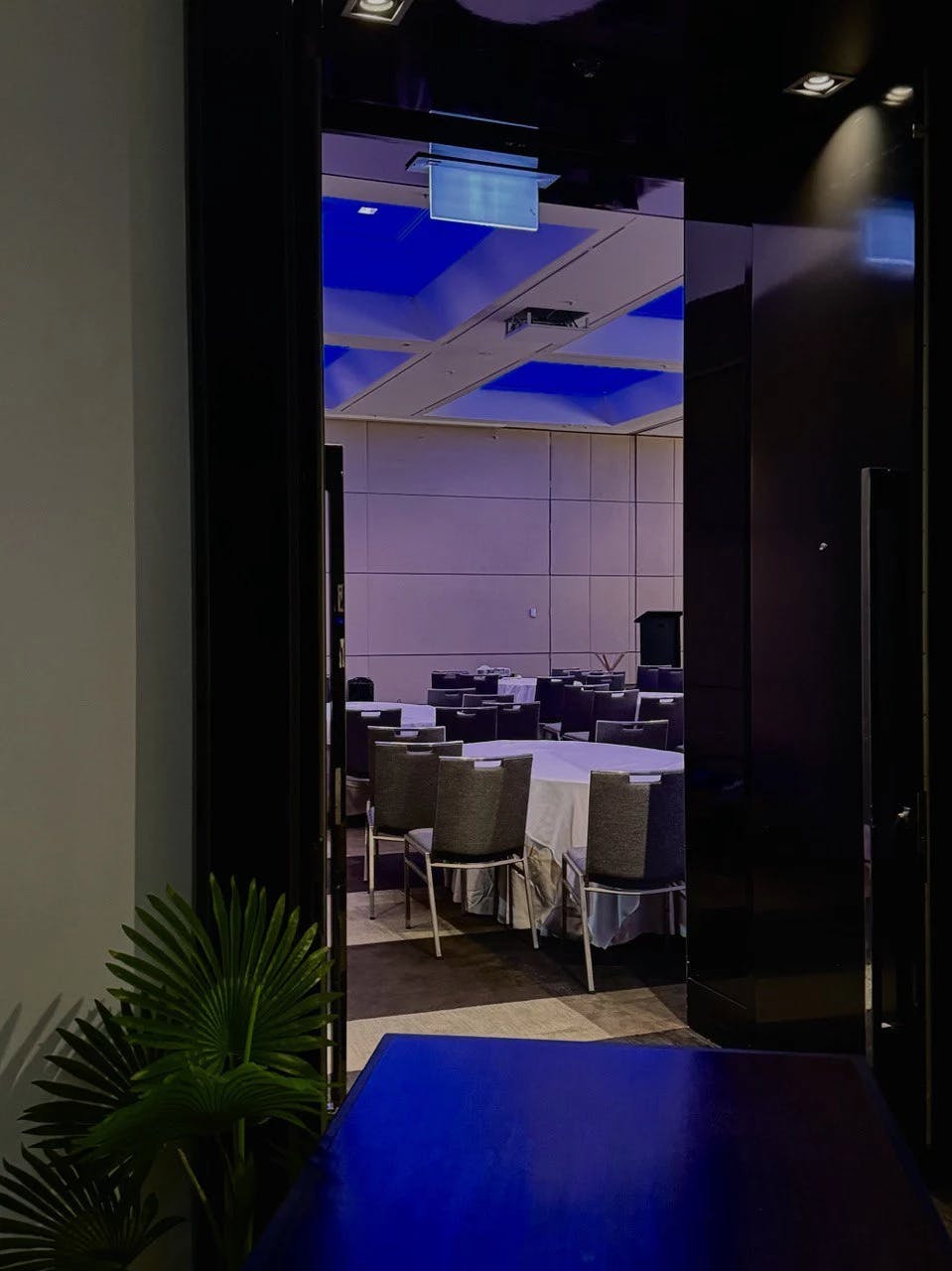ACKNOWLEDGEMENT TO COUNTRY
In Australia, the protocol is to recognise the Traditional Owners of the land to which we are gathering. Therefore, all presentations must begin with an acknowledgement to country and to local Traditional Elders: “We wish to acknowledge and respect the traditional custodians whose ancestral lands we are to meet upon. We acknowledge the deep feelings of attachment and relationship of Aboriginal peoples to Country. We also pay respects to the cultural authority of Aboriginal peoples visiting / attending from other areas of Australia who are present here”.
Indigenous Conference Services acknowledges and pay our respect to the Traditional people of the Country. "Welcome to Country" ceremony and "acknowledging the traditional custodians" of the land shows respect for Aboriginal people as Australia's First Peoples. Ceremonies and protocols are a fundamental part of Aboriginal cultures.
THE CONFERENCE
The 2025 National First Nations Employment & Training Conference will be held at the Hilton Hotel on the Golde Coast QLD on July 30 - August 1, 2025. This conference is a gathering of Indigenous employment and training professionals from across Australia, providing an opportunity for participants to learn about best practices, share experiences, and network with other professionals in training and employment field. The conference focuses on developing strategies to improve employment outcomes for First Nations Australians and to address the systemic barriers that have historically prevented Indigenous people from accessing quality training and job opportunities.
The conference features keynote speakers and prominent Indigenous leaders who have achieved success despite facing significant barriers. Panel discussions bring together experts from different sectors to discuss specific topics related to Indigenous employment and training. Workshops allow participants to learn practical skills and strategies that they can take back to their own organizations.
This two-day conference will bring together organisations, employers and government agencies to discuss and paint a bigger picture of Indigenous employment. Over the years, Indigenous employment has changed considerably. Even though Indigenous unemployment rate is high and still unacceptable, reality shows us that the overall picture is getting brighter by the day. The conference will have an employment trade show as part of the proceedings. This will give participants the chance to look at further opportunities to develop a career path for employers. The conference will have the chance to meet with prospective employment agencies with a view to enhancing partnerships. Similarly, the event will gather employers and businesses who are committed to achieving employment parity to increase Indigenous employment capability and presents an excellent platform for Aboriginal and Torres Straits Islander and mainstream businesses to meet, learn and forge new partnerships. No matter which stage is your organisation in your Indigenous employment journey, many employers aspire to a more systemic and sustainable approach by sharing experiences and learnings and exploring barriers and opportunities together towards a culturally safe and inclusive workplaces and leading in Indigenous workforce.
Furthermore, the conference is designed as a collaborative process structured to facilitate an exchange of ideas and information so that joint solutions could be developed. This joint leadership approach served to ensure that our Aboriginal & Torres Straits Islander cultural heritage are acknowledged and celebrated. The conference will enable employer capability by connecting employers, government, Indigenous employment services, and Indigenous Australians on building an Indigenous talent pipeline and aids in building and implementing an Indigenous Employment Strategy.
In the past, Aboriginal & Torres Straits Islander peoples’ main opportunity to securing long term employment was either by government or within their own community organisations. However, employment within the community were limited at best and in many cases, were only short term and dependent on funding. Government in the past had develop many limited employment programs between six weeks, six months and in some cases up to twelve months with all the best intentions. Things like the RED Scheme, CDEP, just to name a few but as we all know, after people developing work skills and a culture of being employed found themselves with a whole range of new meaningful skills and nowhere to use these new-found skills. Thus, participants become frustrated and disheartened. Most of these programs in the past did have short-term benefits. Today employment is seen as more than just a job. It’s a pathway to economic empowerment for the individual; and therefore, leads to empowerment of our communities which in turn, feeds Indigenous self-determination together with a healthier mind, body and soul.
CONFERENCE PHILOSOPHY
The conference is designed to equip and empowers delegates and drives Aboriginal & Torres Straits Islanders forward as people. The conference will also take an in-depth look at present day government policies and how they may affect our future. Today we have the largest number of representatives ever elected. This has in some way given Indigenous people a voice to the highest level in local, Territory, State and federal governments.
The Australian Government has set three clear priorities for its Indigenous Advancement strategy to make sure efforts are effectively targeted:
EDUCATION: The positive impact that education has on the future success of individuals, families and communities is clear. Children who go to school have better life outcomes.
EMPLOYMENT: Economic development improve the lives of families and communities. The right conditions and incentives need to be in place for Aboriginal and Torres Strait Islander peoples to participate in the economy and broader society.
SOCIAL PARTICIPATION: Growing up in a healthy and safe home and community is essential for First Nations individuals and families to thrive and reach their full potential.
Even though we still have a long way to go, the opportunities to develop career pathway is now possible. Aboriginal medical services have grown to such a size where you no longer could be just an Indigenous health worker but indeed, progress to nursing or even to become a specialised health professional e.g. doctors, surgeon, physiotherapist, etc. Education is and remains to be the catalysts for employment. From Mr. Charles Perkins becoming the first Indigenous person to graduate from a university to the Closing the Gap report which highlighted the numbers of increasing Indigenous university graduates indicates that Indigenous communities are moving forward in such a way that our community groups, educational organisation and government are all working together to create the opportunities for Indigenous advancements through a holistic approach whether it was designed that way or not.
THE CONFERENCE THEME
Indigenous enterprises is key to increasing employment and strengthening the Indigenous economy. However, many Aboriginal and Torres Strait Islander businesses fail within their first year in practice. Establishing collaborative partnerships between Indigenous businesses, communities, government bodies and mainstream organisations is beneficial for all parties involved. And most importantly, it helps Indigenous communities and corporations to regain the control of their economy and wealth. To succeed in the sustained employment of Indigenous workforces, organisations must further their communication and collaboration, and develop their processes to meet changing policies.
One of the key themes of the conference is the importance of cultural safety in the workplace. Many Indigenous people have experienced discrimination and racism in their previous workplaces, which has led to high rates of turnover and disengagement. Creating culturally safe workplaces is essential for Indigenous employees to feel valued, respected, and supported in their roles. The conference provides opportunities for participants to learn about different approaches to creating culturally safe workplaces and to share their own experiences and best practices. Another important theme of the conference is the need to address the skills gap that exists for many Indigenous job seekers. Indigenous Australians have lower levels of educational attainment and face significant barriers to accessing quality training opportunities. The conference provides a forum for participants to share their experiences and strategies for addressing the skills gap, including through partnerships with employers, vocational education providers, and community organizations.
Similarly, Aboriginal and Torres Strait Islander students achieve lower educational outcomes than their non-Indigenous peers. Government and communities must work together in getting children to school, improving their results and supporting families to give their children the best start in life will help to close the educational gap as good education helps keep culture strong and lets future generations share stories about their community, culture and kinship.
Therefore, to further close the gap on Indigenous employment, the conference themes include the following:
I. Indigenous Education
Improve students' attendance rate through effective engagement
Increase academic outcomes by focusing on connection to cultural identity in classrooms
Develop culturally safe and responsive teaching methods for First Nations children
Develop sustainable pathways into higher education and employment
II. Indigenous Employment
Achieve consistent opportunities and develop processes to meet changing policies
Improve and strengthen employees’ transitions into meaningful employment
Support Aboriginal and Torres Strait Islander young people into employment
Create sustainable pathways into employment
Develop an inclusive work environment that celebrates Indigenous culture
Effectively attract, upskill and retain Indigenous employees
Develop employment strategies that focus of creating a healthy work environment
Build trusting and collaborative partnership with communities, families and Elders
III. Indigenous Economic Development
Strengthen Indigenous enterprises through partnerships and collaborations
Build a useful business network through collaboration to deliver mutually beneficial goals
Effectively maintain partnerships for sustainable business outcomes
Build capability and capacity for Indigenous business owners
Drive financial independence and wealth creation opportunities for communities
Develop strategies for industry and government to engage with Indigenous communities to build stronger business networks
Advance business opportunities in rural and regional location
The conference will highlight how First Nations and mainstream businesses are working together with government and Aboriginal and Torres Straits Islander peoples to find innovative ways to address the above topics. The conference will include keynote speakers, practical workshops, exhibitions/expo and concurrent sessions as well as yarning circles and interactive panel discussions. The conference is not politically based, rather should be seen as an opportunity to access information that is not readily available.
THE CONFERENCE AIMS
The 2025 National First Nations Employment & Training Conference aims to give a voice to Aboriginal and Torres Straits Islander peoples to share their concerns, their story and experiences whilst seeking or maintaining employment. This conference presents a chance for Aboriginal and Torres Straits Islander workers to engage with industry leaders and peers, to learn cutting edge innovations and techniques as well as hear firsthand experiences from Aboriginal and Torres Straits Islander peoples. The conference is part of a great new initiative in which the conference will be only one of three First Nations conferences linked together to maximise networking and growing First Nations economic and business opportunities.
The conference objectives are designed to empower and stimulate discussion in a positive manner that can and may be used back in our work environments to further develop strength, unity and education. Moreover, one of the most powerful objectives that Indigenous peoples have is the strength to overcome adversity through the power of sharing knowledge and therefore the conference will attempt to foster all of the issues set out in this conference. The conference believes that the participation of First Peoples in the consultation, planning, formulation of policies and programs is fundamentally important to achieve our desired goal for Indigenous economic development. Moreover, the conference also aims to:
Provide an open and frank forum for discussion:
To promote Aboriginal self determination and self management
To promote further First Nations economic, social and cultural development
To highlight that First Nations Peoples are intricate part of the Australian fabric
To promote leadership in Indigenous communities
To highlight First Nations Peoples are succeeding
To promote First Nations Peoples will remain a part of Australian society well past 2020
Capture, disseminate educational knowledge and consolidate the latest developments
Strengthen the existing networks of practitioners, policymakers, planners
WHO SHOULD ATTEND
Indigenous Men & Women
Indigenous Business Operators
Aboriginal Community Groups
Community Elders/Leaders
Employment Agencies and RTOs
Researchers
Policy makers
Community representatives
Government – Local, State/Territory and Commonwealth
Students & Jobseekers
Community cooperatives
CEOs, Executive Management, Program Managers
Government and Non-Government Organisation Representatives
Economists, Researchers, Scientists
Chairs, Principals and Board Members
Department Heads: Indigenous Education, Economic Development, Indigenous Employment
Aboriginal Corporations
Aboriginal Councils and Shires Not-for-Profits
Mainstream Corporations
Public & Private Schools
Higher Education
YOUR INVITATION
We wish to invite Indigenous and non-Indigenous employment agencies and job services organisation from Australia and throughout to attend the conference to share and gather information. We also extend an invitation to participants to join us at the conference dinner in a relaxed atmosphere. To ensure that delegates attend and participate, it is important to note that to show accountability of delegates in meeting their obligation, each delegate will receive a Certificate of Attendance only when they attend 85% of all the conference sessions. In addition, delegates will receive a compilation of all papers & presentations presented at the conference.
Who: First Nations Peoples, Indigenous and Non-Indigenous Businesses, Government Agencies & Others
When: July 30 - August 1, 2025
Where: Hilton Hotel on the Gold Coast
Time: 9.00am – 5.00pm
SHARE & CELEBRATE INDIGENOUS STORIES/EXPERIENCE
Come and celebrate Aboriginal and Torres Strait Islander cultures, strengths, successes and empowerment. So that we may share each other’s stories and ideas in an atmosphere that empowers and strengthens all delegates.
THE CONFERENCE AGENDA
Disclaimer: This conference agenda is subject to change without prior notice to ensure a smooth flow of conference proceedings.
DAY 1 – Wednesday, 30 July 2025
8:30 AM – 12:30 PM Pre-Conference Masterclass: Indigenous-led Trauma-Informed Care and Suicide Prevention Dr Amber R. Logan (NZ), Health Psychologist Dr Joseph Stone (USA), Clinical Psychologist Indigenous Development Specialists, Cultural Wise
1:00 PM – 5:00 PM Registration, Meet and Greet & Networking
DAY 2 – Thursday, 31 July 2025
8:30 AM - Registration and Networking with fellow delegates, sponsors & exhibitors
9:00 AM - Master of Ceremony: Welcome & Safety Announcement
9:30 AM - Welcome to Country & Acknowledgment of Elders Uncle John Graham & Aunty Mary Graham, Elders Chairperson, Yugambeh Region Aboriginal Corporation Alliance
9:45 AM - Keynote Address: Innovative Projects That Promote Women’s Leadership Aunty Bernice Hookey, Lead Yanalangami Facilitator; Founder & CEO (MZB Empowerment), Tranby Aboriginal Co-operative
10:30 AM - Morning Tea
11:00 AM - Keynote Session: Indigenous Employment in Economic Growth Jyi Lawton, CEO, Aboriginal Enterprises in Mining, Energy and Exploration (AEMEE)
11:45 AM - Keynote Session: Financial Management for Indigenous Entrepreneurs Trudy Hart, Director, Business Solutions, Indigenous Business Australia (IBA)
12:30 PM - Lunch Break
1:30 PM - Keynote Session: Best Practice in Indigenous Professional Employment Programs Julie Matricardi-Old, Program Manager
2:15 PM - Keynote Session: Indigenous Business in the 21st Century Emma Bamblett & Megan Van Den Berg, Owners Kinya Lerrk Woman Coming Together in Wemba Wemba
3:00 PM - Afternoon Tea
3:30 PM - Keynote Session: Positive Mental Health & Diversionary Solutions for At-Risk Youth Mark Robertson, Founder & CEO, MPOWER & One Vision Production
6:30 PM - Conference Dinner – Networking & Celebration
DAY 3 – Friday, 1 August 2025
8:30 AM - Registration
9:00 AM - Keynote Session: RESET – Pathways into Sustainable Employment Dr Tim White, Founder, RESET
9:45 AM Keynote Session: Rich Blak Women – Indigenous Women’s Financial Wellness Project Keiena Aspinall-Ivey, Community Development Manager, First Nations Foundation
10:30 AM - Morning Tea
11:00 AM - Keynote Session: Intergenerational Wealth & Knowledge in Indigenous Businesses Sharon Winsor, Founder | CEO | Executive Chef, Indigiearth
11:45 AM - Keynote Session: Youth in Indigenous Entrepreneurship Kerry Bodle, GBS Academic Director (Indigenous), Griffith University
12:30 PM - Lunch Break
1:30 PM - Keynote Session: Teaching Program and Workforce Outcomes Emma Walke, A/Lecturer Aboriginal Health & Academic Lead, University Centre for Rural Health
2:15 PM Keynote Session: Empowering Young People Through Financial Literacy & Business Education Jadah Pleiter, Founder & CEO, Panku Safety Solutions
3:00 PM - Afternoon Tea
3:30 PM - Closing Plenary: Empowering the Future – The Road to Systemic Change Lluwannee Mercy George, Manager Indigenous Employment, University of Sydney
4:30 PM - Interactive Group Session: Reflections & Key Takeaways Maria Callaghan, Managing Director, ICS Australia
5:00 PM - End of Conference
Why Attend
This conference presents a unique opportunity for delegates to participate in a positive environment that is dedicated to the sharing of information and the empowering of all who attend. In our everyday working environment the day to day stresses of our positions tends to limit us in expanding our knowledge and networking. Whether you work at a community level or at governmental level the opportunity to network and gain contacts outside of your local region tend to be limited, this is why this conference will be so valuable to participants.
BENEFITS OF ATTENDING FOR THE EMPLOYER
As an employee, we are asked to present valid reasons why we should attend. Listed below are valid points that can be raised with your employer to justify your attendance: Staff attending conferences regularly tend to become long term employees. An event such as this adds to the positive morale of staff.
- Staff attending conferences regularly tend to become long-term employees.
- An event such as this adds to the positive morale of staff.
- Conferences are a great way of providing ongoing training.
- Provides the opportunity to further enhance the organisation's knowledge base.
- The opportunity for saving organisations money because of the short duration of the event.
- Allows delegates to showcase the organisation nationally and internationally.
- May provide organisations with new ideas.
- Gives organisations a showcase and voice at a national level.
- Provide an opportunity to evaluate various programs.
- Because this event is conducted over a short period, staff are only absent for a minimal number of days.
CALLING FOR PAPER
To ensure grassroots community programs are highlighted, no less than 50 per cent of the conference proceedings are and is devoted to community groups. If your paper is selected, you may have more than one presenter to present your paper. However, only two presenters will be entitled to the registration discount. If you are chosen to present at the conference, your paper will form part of the conference proceedings and be distributed at the conclusion of the event with all other presentations.
Guidelines in Submitting Paper:
- Papers should not contain offensive language and take into account cultural sensitivities of Australian first nation people.
- Papers must treat the themes in a manner that contributes to further discussion of conference aims.
- Conference papers must be presented in the finished format not less than 60 days prior to the event.
- Papers that are not chosen in the first round may be resubmitted in the second round.
- Papers MUST be submitted in Microsoft Word format. Papers in other formats will NOT be considered.
- Authors of papers presented at the conference will be formally notified of their acceptance in writing.
- A registration fee of $850 will apply to all persons submitting papers, payable within 7 days upon notification of acceptance.
- Papers should explore ways in which the themes show up in the philosophy of the conference.
- All papers must be presented in a positive and informative light.
- To submit a paper, please complete the online form at this link: SUBMIT A PAPER HERE.
- Conferences are a great way of providing ongoing training and provide the opportunity to further enhance the organisation's knowledge base.
- Allows delegates to showcase the organisation nationally and internationally.
- May provide organisations with new ideas and gives organisations a voice at a national/international level.
- Provides an opportunity to evaluate various programs.
- Because this event is conducted over a short period, staff are only absent for a minimal amount of time.
GUEST SPEAKERS
The event is blessed with a kaleidoscope of guest speakers, sharing stories, successes and challenges they’ve overcome, presenting great opportunities and inspiration for delegates to participate in an event that is devoted to the sharing of Culture, Empowerment, Education & Networking. Drawn from a variety of cultural backgrounds, professional careers, and grassroots community commitments, this year’s conference speakers are the difference between an ordinary and extraordinary event; one that is soon forgotten and one which lingers in attendees' memories, a source of tremendous benefit long after the conference is over.
REGISTRATION
Register early to get a discount! Please note that registrations are set out in an affordable way for organisations, which changes on a monthly basis. Hence the earlier you register, the more savings for your organisation. Registration fees include all-day access to the event, available conference papers, daily lunch, and refreshments for registered delegates only. Fees do not include travel costs or accommodation. Registration fees must be received within 7 DAYS from being issued an invoice. Otherwise, bookings will not be considered. To register, please click on the registration button and complete the form. Upon receipt of your completed registration form, we will email you the tax invoice.
SPONSORING THE CONFERENCE
Flexible sponsorship packages are available. Sponsorship opportunities are only open to businesses and private enterprises, not individuals. To showcase your organisation to all conference delegates, ICS has developed hassle-free promotional opportunities and sponsorship packages according to your budget and tailored to your organisation’s needs.
- Gold Sponsorship ($10,000) includes: Keynote session or Break-out sessions, Waived registration fees for your selected staff, Complimentary seats at networking conference dinner, Complimentary display table & USB with photos for reporting purposes.
- Silver Sponsorship ($7,000) includes: Keynote session, Waived registration fees for your selected staff, Complimentary seats at networking conference dinner, Complimentary display table & USB with photos for reporting purposes.
- Bronze Sponsorship ($5,000) includes: Break-out Session, Waived registration fee for your selected staff, Complimentary Display Table & USB with photos for reporting purposes.
To sponsor the conference, please contact us. Indigenous Conference Services (Australia) will be of further assistance in tailoring your sponsorship arrangement. Please phone us on +61 4557 76 668 or send us your expression of interest to admin@icsconferences.org.
CONTACT US
For more information or inquiries, please reach out to us at the following contact details:
- ICS-MEES Pty Ltd
- Indigenous Conference Services (Australia)
- Postal Address: P.O. BOX 702 EDMONTON LPO QLD 4869
- Web: www.icsconferences.org
- Email: admin@icsconferences.org
- Phone: 07 40009111, +61 4557 76 668




